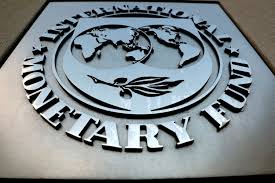Nigeria to Reclaim Position as Africa’s Third-Largest Economy — IMF
Posted 08:09 AM, Saturday October 25, 2025 2 min(s) read

Photo by: Jedidah Ephraim
ABUJA, Oct 25 (AGCNewsNet) – Nigeria is projected to return to being the third-largest economy in Africa in 2026, according to the latest projections from the International Monetary Fund (IMF) — signaling a major rebound after years of economic challenges.
Once Africa’s largest economy, Nigeria slipped to fourth place over the past decade due to currency instability, inflation, and policy inconsistencies. However, the IMF’s new outlook suggests a turnaround, with nominal GDP expected to hit $334.34 billion by 2026.
The IMF projects South Africa to remain Africa’s largest economy with $443.64 billion, followed by Egypt with $399.51 billion, and then Nigeria.
While Nigeria did not make the IMF’s list of Africa’s fastest-growing economies — which includes Benin, Côte d’Ivoire, Ethiopia, Rwanda, and Uganda — the country’s return to third place is attributed to ongoing fiscal reforms and macroeconomic stabilisation policies.
At the launch of Sub-Saharan Africa’s latest Regional Economic Outlook, Abebe Selassie, Director of the IMF’s African Department, said growth across the region is projected to stabilise at 4.1 percent in 2025, with a slight uptick expected in 2026.
“Six months ago, our assessment highlighted that growth had exceeded expectations last year,” Selassie said. “But we also noted that the global economy continues to face weaker demand, softer commodity prices, and tighter financial markets — challenges that are still testing Africa’s resilience.”
Nigeria’s modest recovery has been linked to key policy moves such as the removal of fuel subsidies, efforts to stabilise the naira, and increased oil production. While these steps have improved investor confidence and fiscal outlooks, they have also deepened hardship for ordinary Nigerians.
The IMF expects Nigeria’s economy to expand by 3.9 percent in 2025, but warned that inflationary pressures, foreign exchange volatility, and structural bottlenecks continue to threaten sustained growth.
According to the Fund, for Nigeria to retain and strengthen its economic position, reforms must translate into “tangible improvements in competitiveness, productivity, and living standards.”
The IMF’s forecast comes at a time when Nigeria’s policymakers are under growing pressure to balance short-term economic pain with long-term reform gains — a delicate task that could determine the country’s economic trajectory for years to come.
Stay connected with AGCNewsNet for more updates across Africa.